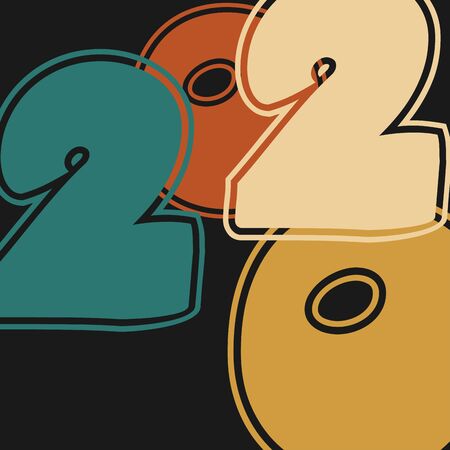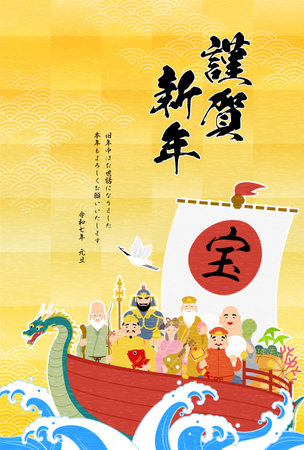Introduction to Bazi: Ancient Wisdom in Modern Eyes
Bazi, also known as the Four Pillars of Destiny, stands as one of the most respected branches of Chinese metaphysics. Rooted in the ancient philosophies of Yin and Yang and the Five Elements, Bazi interprets a person’s destiny through their birth year, month, day, and hour—each pillar offering unique insights into personality, fate, and fortune. Over centuries, Bazi has been an essential guide for families and communities throughout China, shaping decisions on marriage, career, and even daily conduct. In recent years, this sophisticated system has caught the attention of Western audiences intrigued by its depth and predictive power. Scholars and enthusiasts alike have explored how Bazi’s principles parallel modern psychological theories while offering a distinct cultural lens. As Americans seek holistic approaches to life planning and self-discovery, Bazi is finding new relevance far beyond its original context, sparking conversations about destiny, free will, and the enduring influence of tradition.
Bazi’s Role in Shaping Family Dynamics
Within Chinese society, Bazi is far more than a personal fortune-telling tool—it acts as a blueprint for family dynamics, profoundly influencing relationships, marriage decisions, and how generations live together. This holistic approach to understanding character and destiny can be seen as comparable to American interests in personality compatibility, family traditions, and generational values.
Marriage Decisions Guided by Bazi
Bazi analysis is frequently consulted before marriage arrangements. Traditionally, families would compare the Bazi charts of prospective brides and grooms to assess compatibility—believing that certain elemental balances or imbalances could predict marital harmony or discord. While this practice might sound foreign, it parallels the American custom of considering family backgrounds, shared values, and sometimes even astrological signs before making lifelong commitments. The goal on both sides is to foster stable partnerships built on mutual understanding.
| Bazi (Chinese Tradition) | Common American Practice |
|---|---|
| Comparing birth charts for compatibility | Exploring shared values, interests, or using personality tests |
| Consulting elders or experts before engagement | Seeking family approval or premarital counseling |
| Avoiding “clashing” elements for harmony | Avoiding “red flags” or clear incompatibilities |
Parent-Child Relationships and Expectations
Bazi also shapes how parents understand and nurture their children. By analyzing a child’s chart soon after birth, parents may tailor their educational paths and expectations based on perceived strengths and weaknesses. For example, a child whose chart suggests leadership qualities might be encouraged toward positions of responsibility. Similarly, American families often recognize unique talents or learning styles in their children and strive to provide environments that support individual growth—even if the methods differ.
Multigenerational Living: A Shared Value with Unique Expressions
The influence of Bazi extends into multigenerational households—a cornerstone of traditional Chinese life. Elders’ charts are respected sources of wisdom; younger generations are guided by ancestral experience as interpreted through Bazi. In America, while multigenerational living is less common, respect for grandparents’ advice and preserving family stories reflects similar values of honoring lineage and shared decision-making across generations.
Summary Table: Family Values Compared
| Aspect | Bazi Influence (China) | Cultural Equivalent (U.S.) |
|---|---|---|
| Marriage Compatibility | Bazi chart matching | Personality/values alignment |
| Child Nurturing | Destiny-based guidance | Individual talents focus |
| Elder Respect | Ancestral wisdom via charts | Family stories & advice |
| Living Arrangements | Multigenerational homes influenced by Bazi readings | Nuclear families with increasing interest in extended support networks |
This intricate weaving of fate and family highlights how Bazi not only shapes individual lives but also reinforces core social structures—mirroring many American ideals about family cohesion, though expressed through uniquely Chinese traditions.

3. Influence on Social Status and Career Choices
Bazi, also known as the Four Pillars of Destiny, has long played a significant role in shaping social status and career decisions within Chinese society. Traditionally, families would consult a skilled Bazi reader to analyze a child’s birth chart and predict future strengths, weaknesses, and opportunities. This reading could influence which fields of study or professions were encouraged by parents—whether scholarly pursuits, business, government service, or the arts. In some cases, an auspicious Bazi might lead to more ambitious educational investments or arranged marriages aimed at enhancing family status.
Unlike the more meritocratic ideals in American culture, where hard work and determination are often highlighted as the keys to success, Bazi readings introduced a sense of predestined potential and limitation. For centuries, upward mobility in Chinese communities was often seen through the lens of destiny: if one’s Bazi favored civil service or commerce, families would harness all resources toward that direction. Even today, modern professionals may consult Bazi for guidance before making major career moves or business investments.
Comparing these practices to American traditions reveals both contrasts and surprising similarities. In the United States, career advancement is frequently influenced by networking and mentorship—systems that depend on personal initiative and relationships rather than fate. Whereas Americans might seek out internships, alumni connections, or industry mentors to climb the professional ladder, their Chinese counterparts have historically relied on Bazi readings as a guiding force for family strategy and social positioning.
Both systems reflect deep cultural values: Americans tend to value self-determination and adaptability; Chinese traditions emphasize harmony with one’s destiny and aligning personal choices with cosmic order. Yet at their core, both approaches serve to maximize opportunity within their respective societies—whether through cultivating “guanxi” (relationships) or interpreting the mysteries of one’s birth chart.
4. Rituals and Life Milestones: A Bazi Perspective
Bazi, or the Four Pillars of Destiny, is deeply woven into the fabric of Chinese society, playing a significant role in rituals and life milestones that define individual and family trajectories. From weddings to births and even business openings, Bazi analysis guides important decisions, aiming to align actions with auspicious energies for long-term prosperity and harmony. This tradition not only shapes personal destinies but also strengthens community bonds by emphasizing collective well-being.
Weddings: Choosing Auspicious Dates
In Chinese culture, wedding dates are rarely chosen at random. Families consult Bazi experts to compare the couples’ birth charts, seeking alignment that promises marital harmony and future fortune. The selected date is believed to influence the couple’s luck, health, and family growth. In contrast, American weddings often focus on convenience, sentimental dates, or seasonal preferences; however, there is a growing trend of consulting astrologers for “lucky” wedding days as well.
Comparison Table: Wedding Date Selection
| Chinese Tradition (Bazi) | American Tradition | |
|---|---|---|
| Basis for Date Selection | Bazi compatibility & auspicious timing | Personal significance or logistical reasons |
| Role of Expert Consultation | Bazi master or fortune teller | Sometimes astrologer or none at all |
Births: Naming and Timing
The birth of a child marks another crucial milestone where Bazi influences key decisions. Parents may select names based on the child’s Bazi chart to balance elemental energies or choose an auspicious time for delivery when possible—especially with C-sections. While naming conventions in America may honor relatives or favor trending names, some parents are increasingly interested in numerology or astrology for name selection and birth timing.
Comparison Table: Child Naming Practices
| Chinese Tradition (Bazi) | American Tradition | |
|---|---|---|
| Name Selection Criteria | Bazi element balance and meaning | Family heritage or popular trends |
| Birth Timing Consideration | Auspicious hour via Bazi calculation (if possible) | Rarely considered; sometimes astrology for fun |
Business Openings: Fortune and Success
Bazi extends its influence beyond the home and into the commercial world. Before opening a new business, entrepreneurs often consult Bazi masters to pick dates aligned with their personal destiny charts and to ensure positive energy flows for the venture. Grand opening ceremonies are planned around these calculations. In American culture, while grand openings are celebrated with ribbon-cutting ceremonies and marketing events, choosing “lucky” dates is uncommon except among certain immigrant communities or those interested in astrology.
Cultural Parallels and Evolving Traditions
Though rooted in different philosophies, both Chinese and American societies use milestones as opportunities for celebration, reflection, and hope for the future. Where Bazi provides a structured metaphysical framework for these occasions in Chinese families, Americans increasingly explore similar systems—like astrology—to personalize important moments. This cross-cultural curiosity highlights universal desires for happiness, security, and success during life’s pivotal transitions.
5. Contemporary Interpretations and Cross-Cultural Perspectives
In today’s multicultural America, Bazi continues to play a significant role within Chinese-American families and other diaspora communities. While the practice’s roots are deeply traditional, contemporary interpretations reflect an ongoing dialogue between heritage preservation and adaptation to mainstream American values.
Many Chinese-Americans view Bazi not only as a tool for self-understanding or personal guidance but also as a bridge connecting generations. Elders may still consult Bazi experts regarding important life decisions such as marriage compatibility, career choices, or even naming newborns. However, younger generations often approach Bazi with a more flexible mindset, blending its insights with Western ideas about free will, self-determination, and psychological growth.
Balancing Tradition with Modernity
This balancing act is visible in how Bazi readings are incorporated into milestones like weddings or housewarmings. While some families maintain the custom of consulting Bazi masters for auspicious dates, others reinterpret these traditions—perhaps using Bazi as one perspective among many in decision-making processes that also consider scientific advice or personal aspirations. This selective integration allows individuals to honor their roots without feeling constrained by them.
Preserving Heritage through Community
Bazi also serves as a marker of cultural identity within the broader Asian-American community. Cultural organizations and community centers may offer workshops or seminars on Bazi, framing it as both a source of wisdom and a living cultural artifact. These events encourage intergenerational dialogue, allowing elders to pass down stories while inviting youth to ask questions or share their own interpretations.
Integration with Mainstream American Beliefs
As Chinese culture becomes more visible in American society, elements like Bazi find new audiences among non-Chinese Americans interested in holistic wellness or alternative spirituality. In this context, Bazi is often discussed alongside astrology or personality frameworks such as the Myers-Briggs Type Indicator. This cross-cultural curiosity helps demystify traditional practices and fosters mutual respect between communities.
Ultimately, the evolution of Bazi among Chinese-Americans illustrates how ancient wisdom can adapt to new environments. By blending tradition with innovation, diaspora communities ensure that their heritage remains relevant—not just as nostalgia, but as a meaningful part of everyday life in modern America.
6. Conclusion: Lasting Impacts and New Dialogues
Bazi’s influence continues to resonate, not only within Chinese communities but increasingly across the diverse cultural landscape of the United States. As families adapt to new environments while honoring their roots, Bazi serves as both a bridge to heritage and a window into the values that have shaped generations. By understanding how Bazi has historically guided family decisions, social relationships, and even business practices, we gain insight into the enduring power of tradition in shaping identity.
In today’s multicultural America, dialogue around Bazi is evolving. The sharing of Bazi concepts and practices among different communities encourages greater cultural appreciation and mutual respect. It invites Americans from all backgrounds to explore how ancient wisdom intersects with modern life—fostering curiosity rather than division. This ongoing exchange enriches society by highlighting the shared human quest for meaning, self-understanding, and connection.
As we move forward, recognizing the lasting impacts of Bazi offers an opportunity not only for cultural preservation but also for new conversations about destiny, family, and community in an ever-changing world. In embracing such traditions with openness and respect, we lay the foundation for a more inclusive society—one where every heritage contributes to the collective American story.


